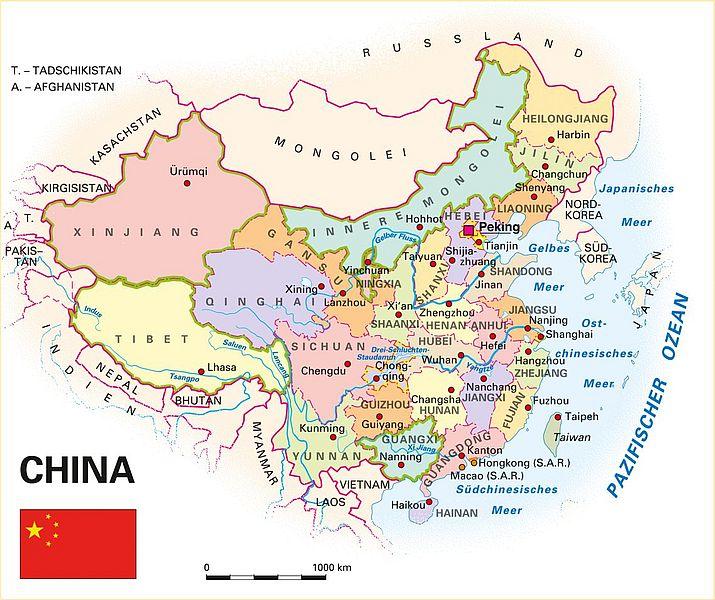China is poised to capitalize on Britain’s reluctance to formally designate it as an adversary, according to a recent analysis by the Information Technology and Innovation Foundation (ITIF). As geopolitical tensions intensify, the report warns that the UK’s hesitant stance may undermine its strategic positioning amid growing concerns over China’s global ambitions. The ITIF highlights how this approach could allow Beijing to advance its economic and technological influence with fewer constraints, raising urgent questions about the consequences for Britain’s national security and international alliances.
China Set to Capitalize on Britain’s Reluctance to Label it an Adversary, Warns ITIF
Recent analysis from the Information Technology and Innovation Foundation (ITIF) highlights a strategic vulnerability in the UK’s current geopolitical stance. By refraining from explicitly designating China as an adversary, Britain risks undermining its national security framework and economic resilience. ITIF experts warn that this hesitation sends mixed signals, potentially emboldening China’s ambitions in technology, trade, and global influence. The foundation stresses that ambiguous rhetoric may delay necessary policy shifts in critical sectors such as 5G infrastructure, AI development, and intellectual property protections.
Furthermore, ITIF outlines the areas where China is likely to leverage Britain’s ambiguity, including:
- Technology supply chains: Increasing dependency on Chinese components and software.
- Research collaboration: Using academic and scientific partnerships to gain competitive insights.
- Economic diplomacy: Expanding influence through investment in key British industries.
| Sector | Risk Level | Potential Impact |
|---|---|---|
| Telecommunications | High | Compromised network security |
| Artificial Intelligence | Medium | Innovation lagging behind |
| Investment | High | Economic leverage increases |
Implications for UK National Security and Technological Sovereignty Explored
Britain’s reluctance to explicitly designate China as a strategic adversary carries significant consequences for national security. Without clear acknowledgment of the threat, the UK risks undermining its defensive measures against state-sponsored cyberattacks, intellectual property theft, and influence operations. This ambiguity limits the government’s ability to implement robust countermeasures, leaving critical infrastructure and sensitive data vulnerable to exploitation.
Key areas affected include:
- Cybersecurity defense: Insufficient threat recognition slows investment in protective technologies and incident response capabilities.
- Supply chain integrity: Compromised procurement processes allow for the infiltration of hardware and software sourced from high-risk entities.
- Technological innovation: Collaboration with Chinese firms blurs lines between partnership and dependency, impeding sovereignty over critical technology standards.
| Security Sector | Potential Risk | Suggested Mitigation |
|---|---|---|
| Communications Infrastructure | Surveillance and data interception | Enhanced vetting of suppliers |
| Research & Development | Loss of innovation leadership | Increased public funding, reduced foreign reliance |
| Government Procurement | Backdoor access vulnerabilities | Stricter procurement guidelines |
Policy Recommendations Urge Britain to Reassess China Stance to Safeguard Innovation Ecosystem
Leading experts warn that Britain’s hesitancy to explicitly designate China as a strategic adversary could severely undermine its ability to protect the nation’s burgeoning innovation ecosystem. The Information Technology and Innovation Foundation (ITIF) emphasizes that without clear policy realignment, British technology firms and research institutions risk becoming vulnerable to intellectual property theft, forced technology transfers, and covert influence operations carried out by Chinese entities. This passive stance may embolden Beijing to exploit regulatory gaps, weakening the UK’s position in the global innovation race.
To counter these growing threats, the report advocates for targeted measures that include:
- Enhanced Export Controls: Tightening regulations on sensitive technology exports to prevent unauthorized transfers.
- Robust Screening Mechanisms: Implementing stringent vetting of foreign investments in critical tech sectors.
- Increased Transparency: Demanding greater disclosure from academic collaborations with Chinese institutions.
- Strategic Alliances: Strengthening partnerships with like-minded nations to collectively safeguard innovation assets.
| Threat Vector | Potential Impact | Recommended Action |
|---|---|---|
| IP Theft | Loss of competitive edge | Stricter cybersecurity protocols |
| Forced Joint Ventures | Technology transfer risks | Clear investment guidelines |
| Threat Vector | Potential Impact | Recommended Action |
|---|---|---|
| IP Theft | Loss of competitive edge | Stricter cybersecurity protocols |
| Forced Joint Ventures |
Key TakeawaysAs tensions between China and Britain continue to evolve, the refusal of British authorities to officially designate China as an adversary may well shape the strategic and economic landscape in the years ahead. According to the Information Technology and Innovation Foundation (ITIF), this ambivalence risks providing Beijing with opportunities to advance its interests unchecked, particularly in the realms of technology and trade. As policymakers in London weigh the complexities of global diplomacy, the challenge remains clear: balancing engagement with prudent caution to safeguard national security without forgoing economic collaboration. The unfolding developments will be closely watched by governments and industries alike, underscoring the high stakes involved in defining the nature of this pivotal bilateral relationship. |




